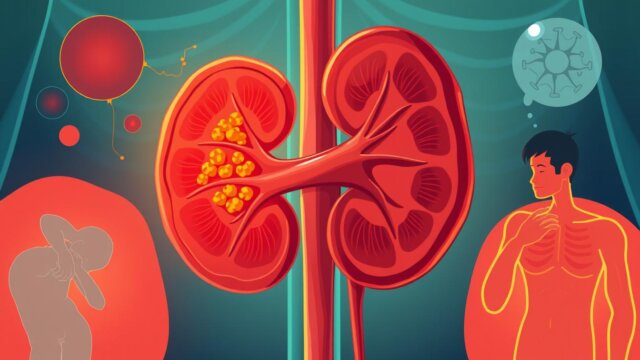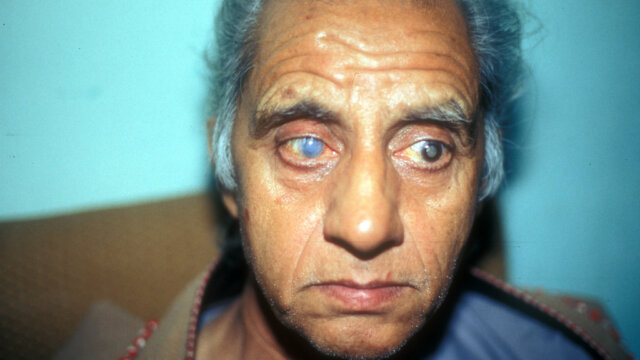FTC disclaimer: This post may contains affiliate links and we will be compensated if you click on a link and make a purchase.
Did you know that nearly a quarter of adults and about 7% of children swallow too much air? This habit can cause discomfort, like frequent burping and bloating. It can even lead to stomach pain. Swallowing too much air is not just annoying. It might show health or mental issues that need help.
This guide will cover the causes, effects, and ways to fix this common issue. We aim to help you manage your swallowing habits for better health.
Key Takeaways
- Aerophagia is the act of swallowing too much air, causing burping, bloating, and discomfort.
- It can stem from physical or mental factors, like habits, health issues, or mental health problems.
- Swallowing air might signal other health issues, such as digestive problems or sleep apnea.
- Treatment options include adjusting CPAP settings, changing habits, doing breathing exercises, and in severe cases, medical help.
- It’s important to find and fix the main cause of swallowing too much air for relief and better health.
What is Aerophagia?
Definition and Overview
Aerophagia is when you swallow too much air. This can happen often or just sometimes. It’s linked to both physical and mental health issues.
When you swallow too much air, you might feel bloated, burp a lot, and feel uncomfortable. Many people don’t know that swallowing air is what’s making them feel bad.
About 4% of kids have aerophagia, a common condition. A big study in the U.S. found 4.2% of kids had it. Kids with special needs are more likely to have it.
Keeping the air pressure low can help reduce aerophagia. Also, some patients on NPPV often report having it.
People with aerophagia might burp a lot, up to 20 times a minute, especially when stressed. Swallowing too much air can also cause more acid reflux, bloating, and gas.
“Aerophagia can be associated with the consumption of large amounts of carbonated beverages.”
Using distractions can help reduce belching in those with aerophagia. Learning about aerophagia is the first step to finding ways to deal with it.
Common Symptoms of Swallowing Air
Swallowing too much air, or aerophagia, often leads to belching. Some people belch many times a minute. You might also feel bloated or have stomach pain. These issues can last for up to 2 years or more.
These symptoms can be like other stomach problems, like acid reflux or irritable bowel syndrome. Less often, you might have constipation, diarrhea, feel less hungry, or get nauseous.
Most folks swallow about two quarts of air daily, which can lead to burping or flatulence. Eating fast, smoking, or drinking fizzy drinks can make you swallow more air.
It’s normal to belch up to 30 times a day. Studies say people pass gas 8 to 14 times a day on average. Passing gas up to 25 times a day is seen as normal.
Symptom | Description |
|---|---|
Belching | Frequent belching, sometimes several times a minute |
Bloating | A bloated or swollen belly |
Abdominal Pain | Abdominal pain or discomfort |
Other Symptoms | Constipation, diarrhea, decreased appetite, and nausea |
Swallowed air can move into the intestines and come out through the anus. If you have too much gas, you might feel like you pass too much gas or it smells bad.
Causes of Excessive Air Swallowing
Behavioral and Lifestyle Factors
Excessive air swallowing, or aerophagia, comes from many behavioral and lifestyle choices. Eating too quickly, taking a second bite before the first is chewed and swallowed, can lead to more air intake. Also, talking while eating, chewing gum, and drinking through a straw can make you swallow more air. Smoking and mouth breathing are also linked to swallowing more air.
Some lifestyle habits can cause aerophagia too. Vigorous exercise and drinking carbonated beverages are linked to swallowing more air. Inflammation of the stomach lining, Helicobacter pylori infection, and gastroesophageal reflux disease (GERD) can also cause more belching and air swallowing.
Behavioral Factors | Lifestyle Factors |
|---|---|
Eating quickly | Vigorous exercise |
Talking while eating | Drinking carbonated beverages |
Chewing gum | Smoking |
Drinking through a straw | Mouth breathing |
Simple changes can help with excessive belching, passing gas, and bloating. But, seeing a healthcare professional is wise if symptoms don’t go away or if you have other health concerns.

“Aerophagia can be a dangerous side effect in non-invasive ventilation (NIV) treatments, with detection based on sound during medical monitoring.”
Medical Conditions Linked to Aerophagia
Some medical conditions make people more likely to swallow a lot of air. One such condition is obstructive sleep apnea (OSA). People with OSA often use a CPAP machine to breathe better. About 16% of those using CPAP machines swallow a lot of air because of it.
People with COPD or heart failure may also swallow a lot of air. This is because they might need a device to help them breathe. Around 8.8% of people with cognitive delays get diagnosed with aerophagia from using this device.
Aerophagia is diagnosed by listening to sounds through a stethoscope outside the belly. Sometimes, it’s found too late, which can cause more problems. If not treated, it can lead to swelling in the stomach, raising the diaphragm, or even causing stomach contents to go into the lungs.
It’s important to deal with aerophagia in these conditions. It can make symptoms worse and cause more problems. Knowing how these conditions relate to aerophagia helps in finding the right treatment.

The Role of Anxiety and Stress
Anxiety and stress are big factors in aerophagia, or swallowing too much air. Many people with aerophagia also have anxiety disorders. Stress, including anxiety stress, is a main cause and makes aerophagia worse.
Stress and anxiety mess with the gut, making more gas and making you feel bloated and gassy. Also, hyperventilation from anxiety can make you swallow more air and burp more.
Studies show that people with a lot of belching do it less when they’re not being watched. This shows how our minds affect our bodies, making us swallow more air when we’re stressed or anxious.
Handling the mental side of aerophagia, like anxiety and stress, is key to fixing it. Techniques like relaxing, talking therapy, and biofeedback can help.

Anxiety and stress are big players in aerophagia. Knowing how our minds affect our swallowing is important for treatment. By tackling anxiety and stress, people with aerophagia can feel better and have better digestion.
Swallowing Air
Swallowing air, also known as air deglutition or aerophagia, is common. We all swallow some air when we talk, eat, or laugh. But, people with aerophagia swallow too much air, causing stomach discomfort. They may pass gas 13 to 21 times a day, more than usual.
Swallowing air is normal, but for those with aerophagia, it causes problems. These problems include a lot of belching, bloating, stomach pain, and gas. Not all belching is from swallowing air, showing it’s a specific issue.
In babies, swallowing air during feeding can seem like heartburn, affecting about 15% of them. Around 71% of people with aerophagia feel gassy.
Gastroenterologists study how common and how bad aerophagia is. They look at how it affects people with other stomach problems like heartburn or ulcers. Knowing why and how aerophagia happens helps in treating it.

For people using CPAP machines, swallowing air is a big problem. About 16 percent of CPAP users get aerophagia and might stop using their machines. CPAP machines can make people swallow more air because their esophagus stays open at night, letting air into the stomach.
To help CPAP users with aerophagia, trying different PAP machines can help. Sleeping on your side instead of your back can also reduce swallowing air.
Anxiety can make people swallow more air, causing panic and hyperventilation. Therapy like CBT can lessen anxiety and help with swallowing air.
Other ways to stop swallowing air include taking anti-gas pills, avoiding certain foods, drinking less soda, and eating slowly. Understanding and fixing the causes can help people with aerophagia feel better and have healthier stomachs.
Diagnosing Aerophagia
Tests and Assessments
Diagnosing aerophagia starts with a detailed check-up by your doctor. They will ask about your symptoms, like too much belching, bloating, or pain in your belly. Your doctor will also check your belly for signs of swelling and tap it to see if there’s air inside.
An X-ray of your belly can show if you have too much air in your intestines or if your bowel is swollen. Your doctor might also do an upper endoscopy to check for other health issues.
To figure out if you have aerophagia, doctors use the Rome criteria. These say that aerophagia is when you swallow a lot of air, which makes your belly swell and you burp a lot, lasting over 12 weeks in a year.
- Some people with mental health issues like autism or Rett syndrome swallow a lot of air.
- About 8.8% of kids in special institutions have aerophagia.
- Half of those with aerophagia have had symptoms for over a year.
- Kids with mental issues and aerophagia might face serious problems like twisted intestines or serious infections.
Your doctor will look at your symptoms, past health, and do tests to make sure you have aerophagia. Then, they can make a plan to help you.
Treating Aerophagia
If you’re struggling with aerophagia, or swallowing too much air, there are ways to feel better. Adjusting your CPAP settings or trying different masks can help. You might also want to look into other positive airway pressure devices.
Changing your daily habits can also help. Eat slowly and chew well to swallow less air. Speech therapy can also improve how you breathe when you talk.
Dealing with health issues like anxiety or diabetes might be needed too. Your doctor could suggest therapy to help you notice and control your air-swallowing.
If simpler methods don’t work, your doctor might suggest more serious steps. This could include a tube to remove extra air from your stomach. But this is usually for very serious cases that don’t get better with other treatments.
Working with your healthcare team is key. They can find out why you have aerophagia and make a plan just for you. With the right treatment, you can manage your symptoms and keep getting help from your CPAP therapy.
Therapy | Description |
|---|---|
CPAP Adjustments | Modifying CPAP settings or trying different mask types to reduce air intake |
Alternative Devices | Using bi-level positive airway pressure (BiPAP) devices instead of CPAP |
Lifestyle Changes | Slow eating, avoiding triggers, practicing breathing exercises |
Medical Treatment | Addressing underlying conditions like anxiety, reflux, or diabetes |
Invasive Options | Using a tube to siphon out excess air from the stomach (for severe cases) |
Living with Aerophagia
Self-Care Strategies
Living with aerophagia means you swallow too much air. You can manage it with self-care. Experts say to take small bites and chew well before taking another bite. Also, eat with your mouth closed and breathe slowly.
Don’t breathe with your mouth open and avoid smoking and fizzy drinks. These changes can help a lot.
If you use CPAP therapy for sleep apnea, the right mask and settings can help. Switching to an APAP machine might also ease your symptoms. Sleeping with your head slightly raised can stop air from flowing into your stomach.
See a doctor if you have ongoing or bad aerophagia. They can adjust your CPAP or suggest other treatments like BiPAP machines. With the right care and medical help, you can handle aerophagia better.
Lifestyle Factors Contributing to Aerophagia | Impact on Aerophagia |
|---|---|
Carbonated beverages | Major cause of aerophagia due to carbon dioxide content |
Chewing gum | Allows air to enter the stomach and esophagus, contributing to aerophagia |
Loose dentures | Can lead to unintentional swallowing of air, prompting possible adjustments or changes in size |
Sitting upright | Can facilitate the ejection of swallowed air in the form of a burp, aiding in the relief of discomfort from trapped air in the stomach |
Managing aerophagia is key for your health. By using these self-care tips and getting professional advice, you can control your symptoms. This will improve your life quality.
Conclusion
Swallowing too much air, or Aerophagia is a common issue. It can cause stomach discomfort. It affects 3.66% of kids and teens. Knowing what causes it and how to manage it is key.
Many things can make you swallow more air, like feeling anxious or stressed. Normally, we swallow about 30 ml of air with our food. But if you have aerophagia, you might swallow much more. This can cause belching, bloating, and heartburn.
There’s no one fix for aerophagia, but treatments can help. Things like behavior therapy, talking therapy, and some medicines can make a big difference. These treatments can help you feel better and live better.
Working with your doctor and trying self-care can help you manage swallowing too much air. This can lead to better digestion and overall health.
FAQ
What is aerophagia?
Aerophagia means swallowing too much air. It can be long-term or short-term. It’s linked to both physical and mental factors.
What are the common symptoms of aerophagia?
Symptoms include a lot of belching, feeling bloated, and stomach pain. These issues can last for years.
What can cause excessive air swallowing?
Eating fast, talking while eating, and chewing gum can cause it. So can drinking through straws, smoking, and mouth breathing. Vigorous exercise and carbonated drinks also play a part.
Are there any medical conditions linked to aerophagia?
Yes, people with certain health issues are more likely to have it. This includes those with sleep apnea, COPD, or heart failure.
Is there a psychological component to aerophagia?
Yes, many people with it also have anxiety. Swallowing air may be a way to deal with stress.
How is aerophagia diagnosed?
Doctors will talk about your symptoms and check for a swollen belly. They might do an X-ray or endoscopy to see if there’s too much air in your system.
How is aerophagia treated?
Treatment varies. It can include changing habits, treating anxiety or acid reflux, and in some cases, using a tube to remove extra air.
What self-care strategies can help manage aerophagia?
Try taking small bites and chewing well. Modify your swallowing and keep your mouth closed while eating. Slow down your breathing, stop smoking, and treat any health issues.








